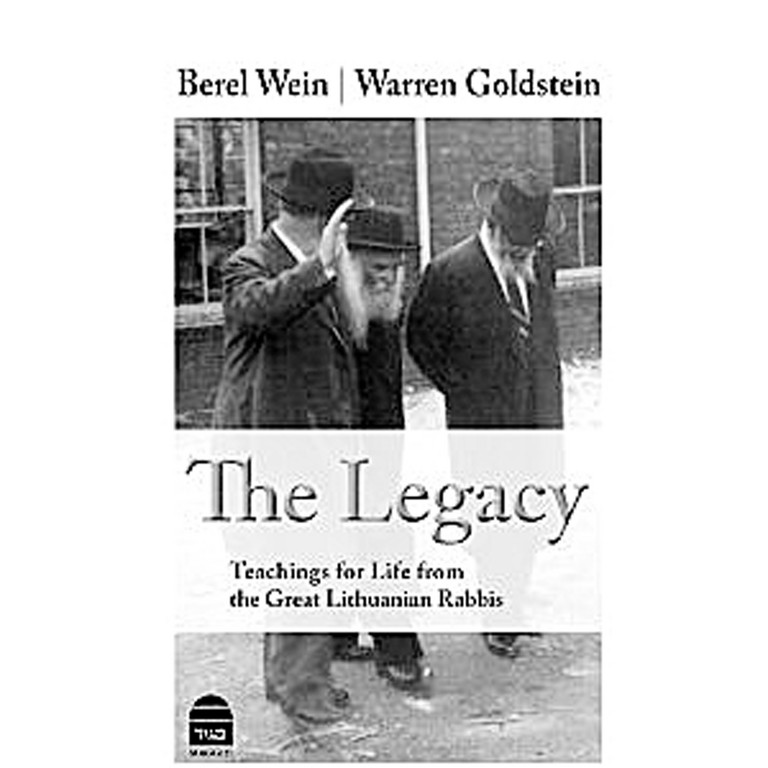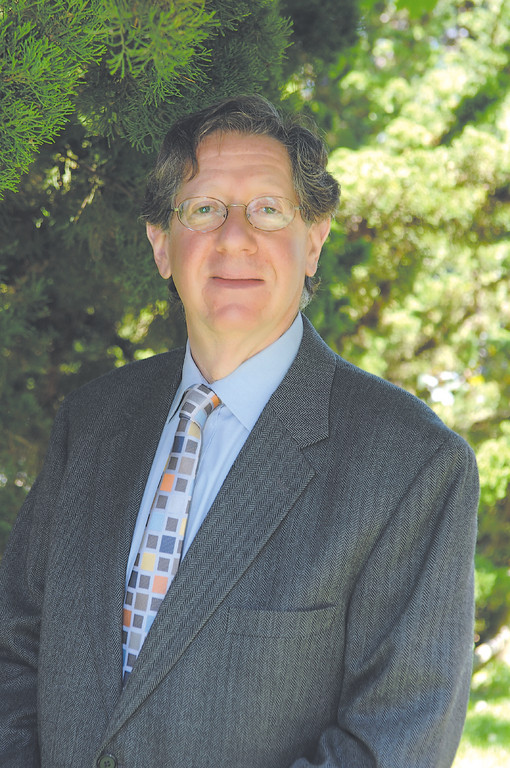The Kosher Bookworm: The legacy of the great Lithuanian Rabbis: another Berel Wein classic
The word “legacy” should bring to mind all the greatness and grandeur that any human being would desire in anyone of spiritual authority. Legacy bespeaks of the bequeathing of knowledge, a code of conduct, honesty, and integrity to a posterity that we wish for ourselves and our progeny.
Mindful of this is what makes one’s history, whether personal or collective, so attractive to study and to learn from. Thus we find such a legacy in the subject matter to be reviewed in this week’s essay.
In 1994, Rabbi Berel Wein wrote the following about a work entitled, “The Hasidic Movement and The Gaon of Vilna” by Rabbi Dr. Elijah Judah Schochet, himself a descendent of the Vilna Gaon:
“Anyone interested in understanding the stormy events that led to the major changes in Jewish life over the past two centuries will find this book of great aid and value. It is obvious that only knowledge of the past can help us understand the present.”
Such an accolade by Rabbi Wein can now be extended to his own recent cognate work written in collaboration with South African Chief Rabbi Dr. Warren Goldstein entitled, “The Legacy: Teachings for Life from the Great Lithuanian Rabbis” [Maggid Books, Koren, 2012].
Brought to my attention by my friend Chaim of Cedarhurst’s Judaica Plus, this work, by two exceptionally talented scholars, will surely give the reader a clear and comprehensive picture of what the Lithuanian Jewish legacy was all about, and why its impact upon our people has had such an everlasting influence upon us all.
From the book’s introduction we learn of the educational backgrounds of these two gentlemen in their own words.
“In this book, we have sought to construct a virtual ‘letter’ to this generation according to the teachings and worldview of the remarkable Torah sages of Lithuanian Jewry, as we received these teachings from our own rebbeim and mentors, zt”l, who were the disciples of these sages.
“Rabbi Berel Wein was a student of Rabbi Chaim Zvi Rubenstein, a student of Volozhin; Rabbi Zev Wein, a student of Rav Shimon Shkop; Rabbi Yisrael Mendel Kaplan, a student of Yeshivos Mir and Baranovitch; Rabbi Mordechai Rogow, a student of Mir; and Rabbi Chaim Kreisworth, a student of Slabodka.
“Rabbi Warren Goldstein was a student of his late Rosh Yeshiva and rebbe, Rabbi Azriel Chaim Goldstein, who was a student of Rabbi Mordechai Gifter, who himself had learned from Rav Avraham Yitzchak Bloch, who was a student of Rav Yosef Yehudah Lev Bloch, a student of Rabbi Eliezer Gordon, the founder of Telz, who in turn, was a student of Rav Yisrael Salanter, a student of Rav Zundel Salant, who was a student of Rav Chaim Volozhiner, who was a student of the great Vilna Gaon himself.”
We learn from Rabbi Goldstein’s essay “Being a Mensch,” of the following teachings of the Vilna Gaon, as gleaned from his famous letter and ethical will:
“Much of the letter discusses middos tovos, emphasizing the severity of speech-related sins, such as lashon hara. Consistent with his view that middos ‘encompass the entire Torah,’ the Vilna Gaon connects the rules against lashon hara with the building of good character. Although these laws are part of the actual mitzvos of the Torah, they are also rooted in a person’s character. The Gaon broadens the concept of sinful speech beyond lashon hara to include scoffing, breaking vows and oaths, and conflict-laden speech, all of which constitute bad middos.”
This work is studded with a panorama of great historical figures who were each destined to set the stage for Jewish religious scholarship, organizational life, and discipline for the next two centuries. Their legacy was destined to survive life spans, as well as persecutions, that enabled our faith to enjoy a high quality spiritual longevity, both here in America and in Israel, in the quality of learning and numbers far exceeding their European antecedents. Some of these personalities include Rav Aharon Kotler, Rav Yaakov Kaminetzky, and Rav Mordechai Gifter, z”l. Each in their own way, derech, and geographic clime, contributed mightily to the survival of our faith on these blessed shores.
FOR FURTHER STUDY
I am happy to note the publication of volume 14, Winter 2012, Hakira: The Flatbush Journal of Jewish Law and Thought. Among the over dozen excellent scholarly works are two in particular that I wish to draw your attention to. The first is entitled, “A Chapter in American Orthodoxy: The Eruvin in Brooklyn” by Rabbi Adam Mintz, and “The Exodus: Convergence of Science, History and Jewish Tradition” by Dr. Judah Landa.
Each of these studies will surely give you a different perspective on subjects that warrant greater study by you. Hakira can be obtained locally at Zundel Berman’s on Central Avenue, in Cedarhurst.
Also, please note the publication of volume three of Dialogue, Fall 2012. I am pleased to note that its new managing editor is Eytan Kobre of Bayswater. The subject matter found in Dialogue ranges from such issues involving homosexuality, metzizah be-peh, as well as several scholarly pieces on polemics, halachah, and scripture analysis. Among the gifted writers in this issue are Rabbi Benjamin Blech, formerly the rav of the Young Israel of Oceanside, and Rabbi Hillel Goldberg, our country’s premier journalist of Jewish opinion.

 50.0°,
Overcast
50.0°,
Overcast 







